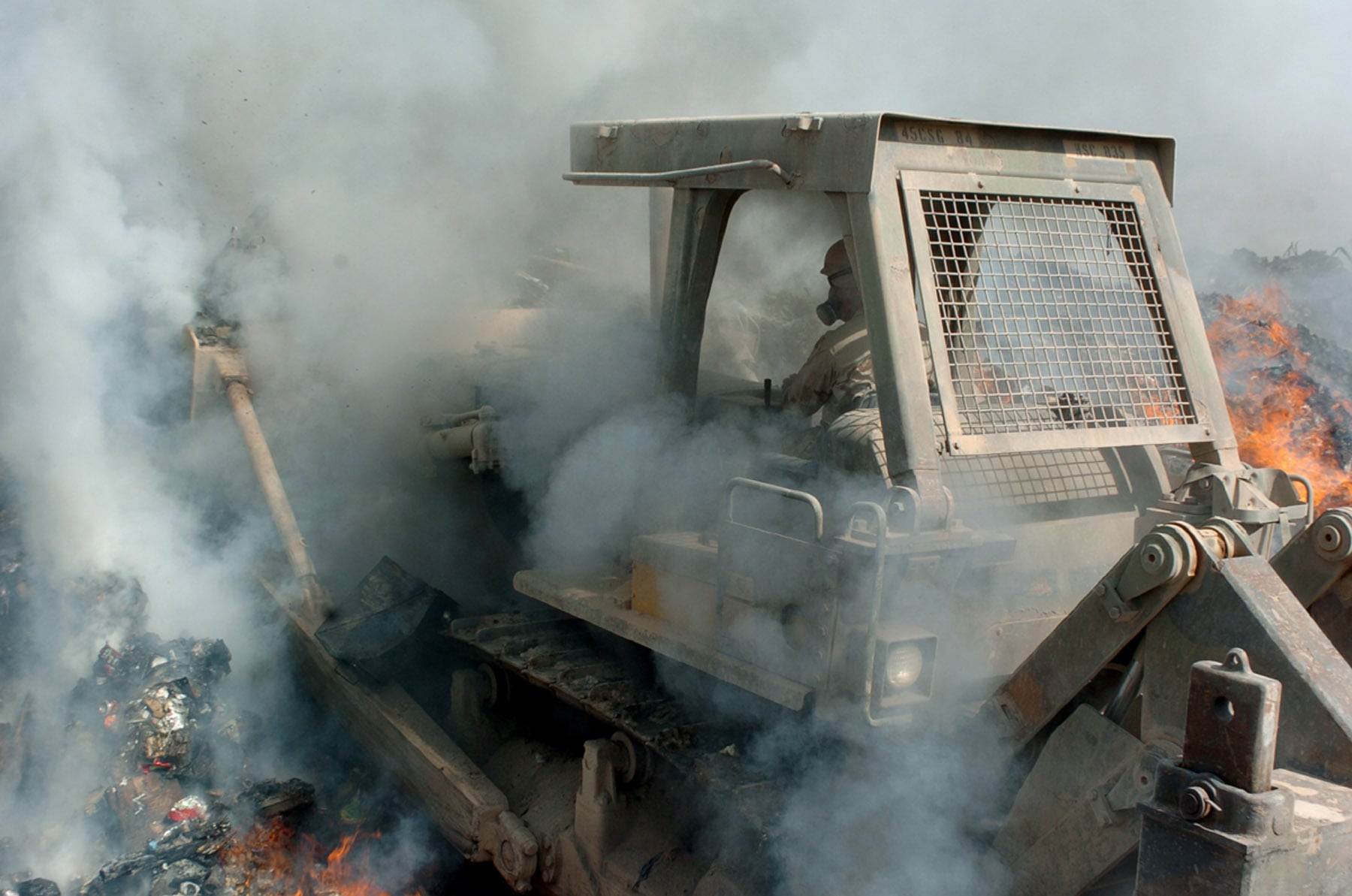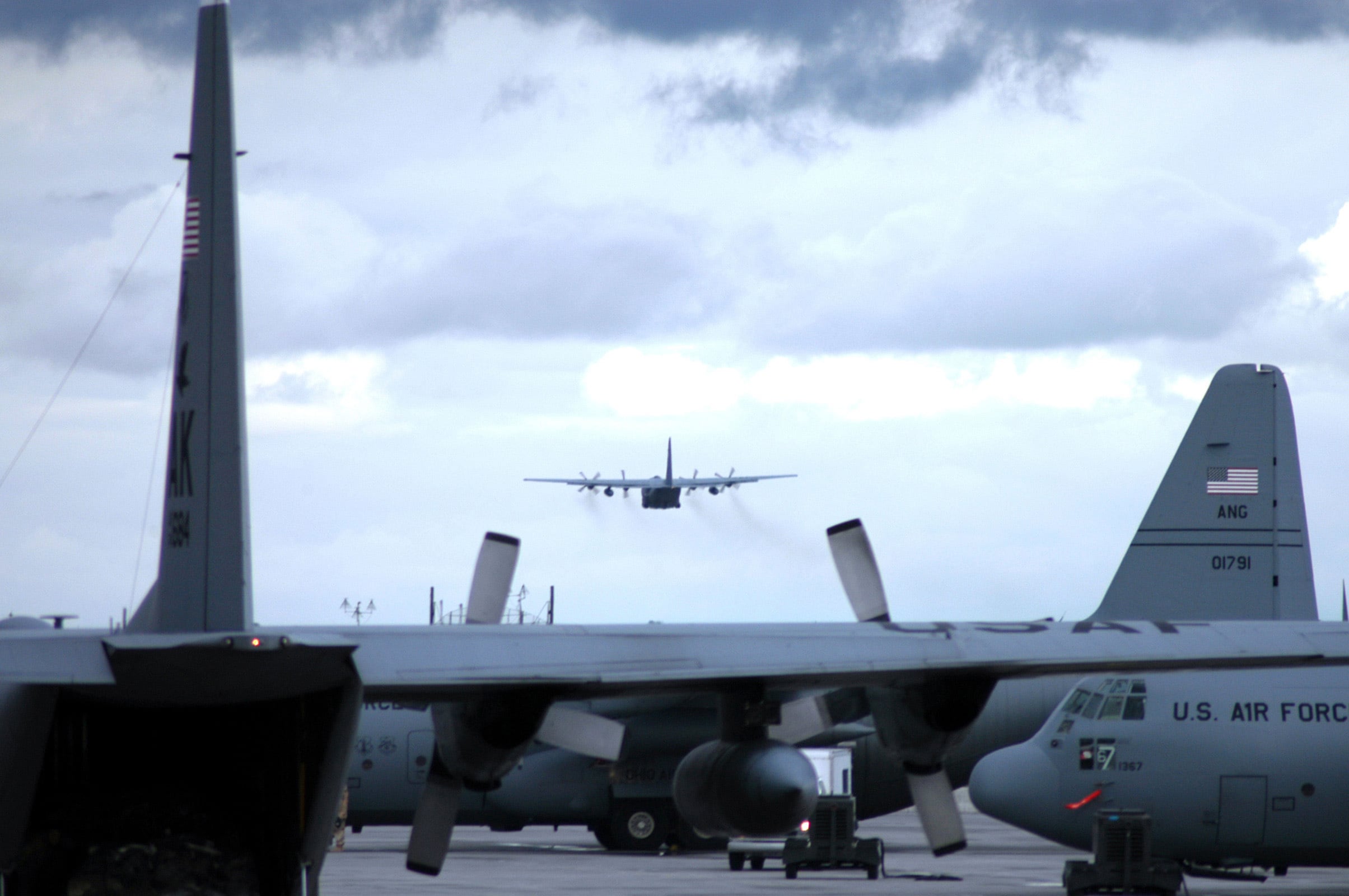Several congressional committees are stepping up pressure on the Departments of Defense and Veterans Affairs to release documents about toxic pollution at a former Uzbek air base used by U.S. troops in the aftermath of the Sept. 11, 2001, terrorist attacks.
On Wednesday, Rep. Elaine Luria, D-Va., chairwoman of the House Veterans Affairs Disability Assistance and Memorial Affairs Subcommittee, joined a growing chorus of lawmakers seeking answers on dangerous conditions at Karshi-Khanabad Air Base, also known as K2, where more than 7,000 American military personnel worked from 2001 to 2005.
Luria sent letters to Defense Secretary Mark Esper and VA Secretary Robert Wilkie requesting documents on conditions at the installation, which included radiation, fuel and chemical contamination. She is also seeking data on veterans filing claims for illnesses possibly related to their assignment to the base.
The request follows demands from a bipartisan House Oversight and Reform Committee panel for complete military records on conditions at the installation, as well as the number and types of disability claims, injuries, illnesses, deaths and research on K2 veterans.
RELATED

Citing studies that showed K2 veterans were five times more likely to develop some cancers than those who deployed elsewhere, as well as reports of chemical and radiation exposure, Luria said she is concerned that “VA has not acknowledged a relationship between serving on K-2 and diagnosis of cancers or death,” and that the Defense Department is ignoring the problem.
“The possibility that the Department of Defense knew that U.S. personnel deployed to K-2 would likely be exposed to dangerous chemicals and failed to advise them to take proper safeguards is deeply concerning,” Luria wrote.
The Defense Department did not respond to questions about the letters from Military Times.
A VA official said March 10 that VA is working with DoD to determine who served at K2 and document their health status or deaths.
“VA will review the data and follow this cohort for trends, such as cancers and other diagnoses or emerging issues,” VA Media Operations Director Susan Carter said.
She added that K2 veterans can seek a medical exam from their primary care providers and are eligible to participate in the VA’s Airborne Hazards and Open Burn Pit Registry to document their health concerns.
In January, members of the House Oversight and Reform Committee requested documents from VA on the issue, and demanded them again in March after the VA responded to them saying there is “no indication of increased cancers” among K2 veterans.
In their letter sent March 4, the lawmakers, including Committee Chairwoman Rep. Carolyn Maloney, D-N.Y., Rep. Stephen Lynch, D-Mass., Rep. Jody Hice, R-Ga., Rep. Mark Green, R-Tenn., and Rep. Mark Meadows, R-N.C., noted that despite a pledge made by Wilkie during a Feb. 5 press conference that VA is “working with DoD to get to the bottom” of the K2 issues, at least one service member who sought treatment at VA was told the department couldn’t test for depleted uranium or radiation exposure.
“Your sentiments appear well-intentioned, but these men and women deserve answers from their government,” they wrote.
RELATED

In addition to military studies on pollution at the site, the McClatchy news organization last December ran a series of articles chronicling conditions on the base, which included a runoff pond that glowed green, blackened “goo” seeping up from the ground and fine particulate matter covering most surfaces.
The installation, a former Soviet and Uzbek military base, was used for logistics support for Operation Enduring Freedom in Afghanistan. DoD documents obtained by the news organization stated that the grounds of the base, also known as Camp Stronghold Freedom, were contaminated with missile propellant, solvents, fuel, lubricants, trace amounts of chemical weapons and depleted uranium.
The Oversight and Reform Committee members gave VA until March 13 to meet with members on the subject and March 20 to respond to their letter, given the unsatisfactory response they received following their March 4 request.
“This response·is confounding since the VA has been unable to provide any scientific or medical assessments or analysis that would support the VA’s repeated claim that there is not a causal relationship between hazardous exposures at K2 and developing cancer,” they noted.
Luria gave both departments until March 27 to respond.
Patricia Kime is a senior writer covering military and veterans health care, medicine and personnel issues.





